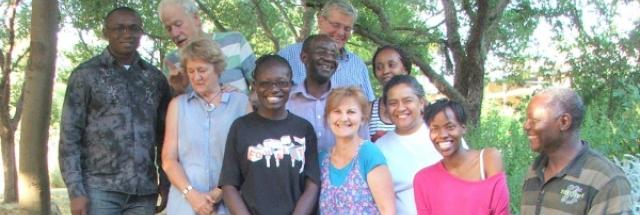Workshop for Africa
The need for good governance, defined by Chief Enyaoku as “ethical leadership and equality of all citizens before the law”, inspired a new emphasis on what IofC should be doing in Africa. At the May 2012 Consultation in Cameroon, IofC representatives from Africa decided to put maximum effort into this priority in order to make a measurable impact on the fight against corruption and to help strengthen civil, political and business institutions in Africa in the service of their people.
What is Good Governance?
Three elements were identified as encompassing the content and outreach of good governance:
- Incorruptible leadership. Continue to develop and expand the ethical leadership training through the Harambee Leadership Training Programme.
- Equality before the law or active citizenship. Help individuals and institutions of civil society strengthen their own voices and abilities to engage constructively with authorities.
- Needs-based development. Engage with authorities and communities, individually and in partnership with other organisations, to build community enterprise and employment.
Purpose
The lack of good governance practices in many countries in Africa, evidenced by corruption, unequal access to the law and uneven distribution of development benefits, is to be addressed through campaigns to promote clean elections, active citizenship and ethical leadership.
Background
During Harambee Africa Leadership Programme 2011, in Nigeria, Chief Emeka Enyaoku, former secretary general of the Commonwealth, identified the lack of good governance as Africa’s highest priority. This led to the concept of a continental campaign to build ethical leadership and active citizenship in African countries.
Beneficiaries
Civil society institutions in Africa; civic bodies; Clean Election campaigns; political and business groups. Benefits include training in ethical governance and strengthening the integrity of civic institutions.


